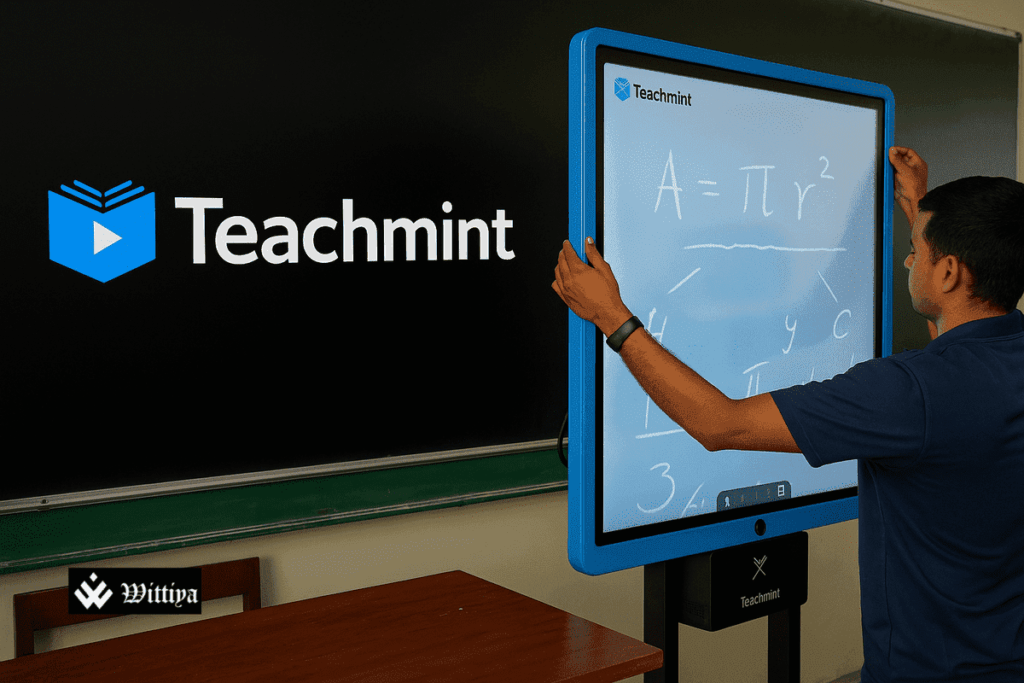Teachmint, an edtech company based in Bengaluru, Karnataka, India, has pivoted from a SaaS model to building in-house smart classroom hardware to meet the evolving needs of schools. The company is now partnering with manufacturers like Zetwerk and focusing on profitability as it expands its presence across India and explores international markets.
Teachmint, an Indian edtech company founded in 2020 and headquartered in Bengaluru, Karnataka, has redefined its business model by transitioning from software-based services to building classroom hardware. The pivot comes after the company’s mobile-first teaching SaaS platform lost traction post-COVID, prompting a strategic overhaul.
Initially developed to empower teachers during India’s COVID-19 lockdown, Teachmint’s app allowed live classes, attendance tracking, and fee collection. The startup raised nearly USD 118 million from investors like Lightspeed, Better Capital, and Rocketship.vc. However, when schools resumed offline operations, demand for online learning tools declined sharply.
To stay relevant, Teachmint began developing its own smart classroom devices under the brand TeachmintX, partnering with contract manufacturers such as Zetwerk. These AI-powered classroom kits integrate assessments, content creation, teacher analytics, and automated recordings, all offered at an accessible cost starting at ₹1,00,000 (approx. USD 12,000) per classroom.
According to co-founder Mihir Gupta, the company’s goal was to directly embed itself within classrooms. “We realised that real impact in education happens inside the classroom, and not just through standalone apps,” he noted.
The startup’s restructuring also included trimming its workforce from nearly 500 to about 250, optimizing operational efficiency. In FY25, Teachmint recorded operational revenue of ₹74 crore (approx. USD 8.8 million) and reduced its losses to ₹50 crore (approx. USD 6 million), signaling financial recovery.
Besides Indian private schools, the company is also deploying devices in IITs, government schools, and corporates, expanding through direct sales and CSR partnerships.
Teachmint’s major competitors—LEAD School and Next Education—are also entering the hardware segment, targeting India’s 400,000+ private schools aiming to transition from chalkboards to tech-enabled classrooms.
Looking ahead, the company plans to reach break-even within two years. Teachmint is further exploring opportunities in Southeast Asia, the Middle East, and Africa, where similar education digitization trends are taking shape.
“We’re not just an edtech SaaS firm anymore. We’ve become a full-stack AI infrastructure partner in education,” Gupta said.




